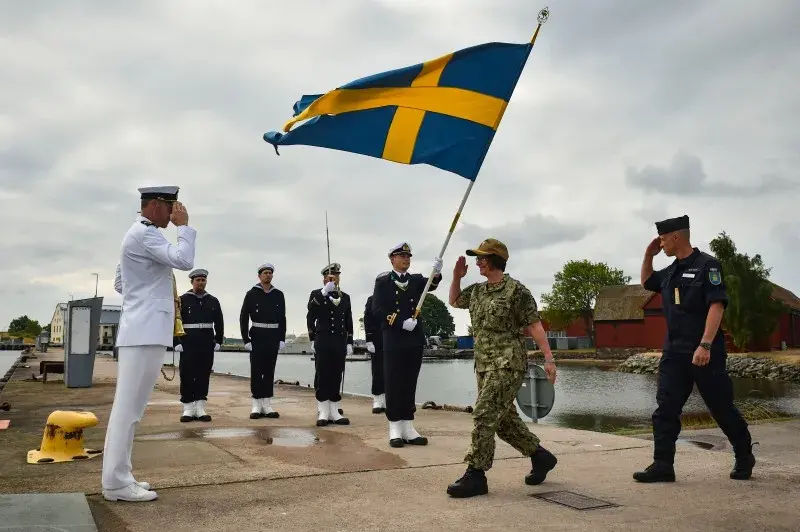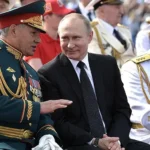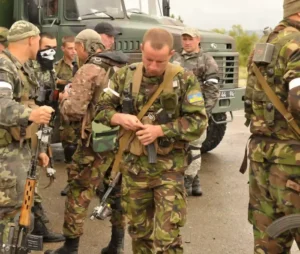Sweden’s accession strengthens NATO’s presence in the Arctic, where Russia has a sensitive military establishment.

The moment Stockholm had been eagerly awaiting finally arrived: Sweden formally becomes the 32nd member of the Atlantic alliance this Thursday, March 7, 2024, after Hungary lifted the final obstacle. Swedish Prime Minister Ulf Kristersson is in Washington to formalize the process. Thus, Sweden is the last Nordic nation to join the ranks of the North Atlantic Treaty Organization (NATO).
In May 2022, when it, along with Finland, applied for membership in the alliance, NATO assured the Swedish government that its accession process would be the fastest in history.
However, it did not turn out that way. While Finland obtained approval from members and joined NATO in April 2023, Sweden remained in suspense and felt excluded compared to its Nordic neighbors Norway and Finland. This was also because it expected the duo’s accession to be a joint effort, as the initial application had been.
But the opposition from Turkey and Hungary forced Sweden to accept this long delay before being able to enter the NATO security umbrella.
Oscar Jonsson, a researcher at the Swedish Defense University, states that declaring the desire to join NATO but being blocked by potential allies was the “worst place” for Sweden to be stranded, even if temporarily. “If we look only at recent empirical data, we can see that Russia has invaded two states it perceived as on the way to joining NATO,” he told DW, referring to Georgia and Ukraine, “but not any NATO member states.”
The approval from the Turkish Parliament took about 20 months, and Hungary’s even a few weeks longer. In both cases, additional diplomatic efforts were required.
Sweden had negotiated multiple bilateral security agreements with NATO countries over the years, based on its intention to remain outside a military alliance, but none had the binding nature of NATO’s Article 5 guarantee of “all for one and one for all.”
Swedish Defense Minister Pal Jonson, who previously headed the Swedish Parliament’s defense committee, advocated for his country’s accession to the transatlantic bloc for decades, saying, “We can hope, we can assume, we can wish that we get NATO’s support [in case of an attack], but we cannot know until we join the alliance.”
However, for most of the Swedish population, the integration of the Scandinavian country into NATO was not of great interest. This changed when Russian President Vladimir Putin initiated the aggression against Ukraine. Additionally, neighboring Finland made it clear that it would not waste time seeking alliance membership.
According to foreign policy and security studies expert Oscar Jonsson, Sweden’s “special status” had long disappeared. He adds that, although the NATO membership application was presented by many inside and outside Sweden as abandoning the cherished image of the country as a “neutral” and militarily non-aligned nation, in reality, it was not.
“Joining the European Union was a bigger change,” he says about the 1995 decision, “as the EU has supranational authority and can create its own laws, which affects the Swedish way of life much more tangibly.” But NATO does not have the authority to affect legislation and operates entirely by consensus, meaning Sweden must agree. “Sweden cannot be completely altered without Swedish consent,” he emphasized.
The fact is that Sweden’s accession strengthens NATO’s presence in the Arctic, where Russia has its “most sensitive military establishment, ballistic missiles launched from submarines, strategic bombers, and where they conduct a significant portion of their experiments,” Jonsson notes.
In addition to Sweden’s geostrategic conditions, the Nordic nation contributes significant military assets to NATO’s potential arsenal.
The Washington-based Wilson Center points out three major advantages for the alliance: the Swedish defense industry, one of the largest in Europe, producing some of the “most sophisticated equipment on the market”; the “high level of technological competence in the Swedish private sector,” and above all, “the Swedish Air Force is the largest in the Nordic countries and one of the most powerful in Europe.”







